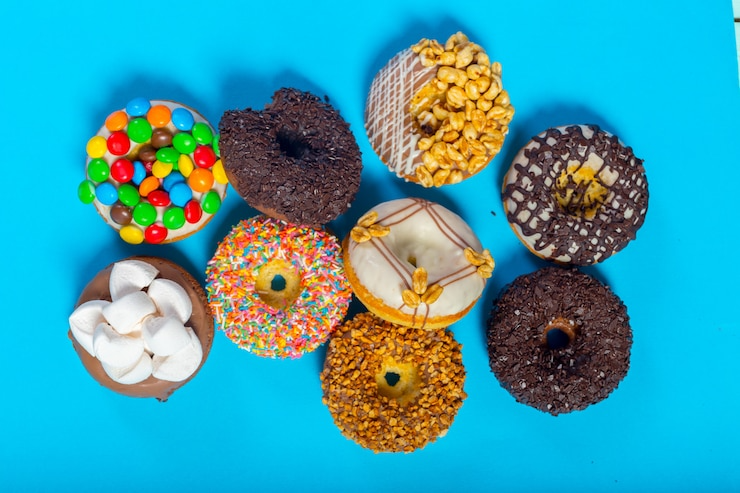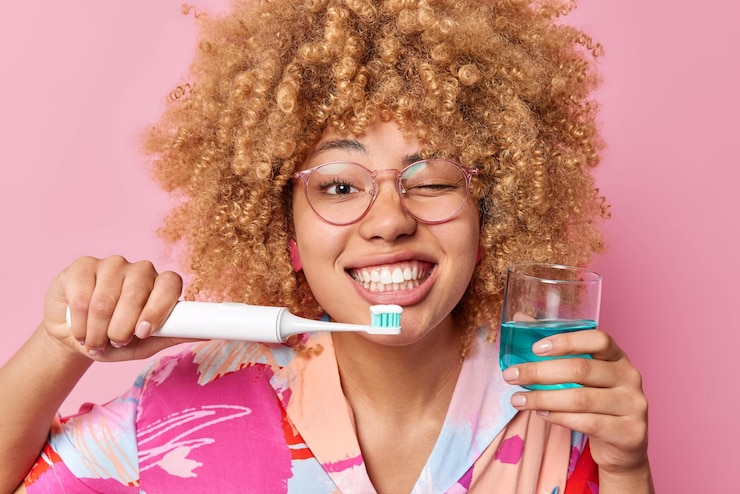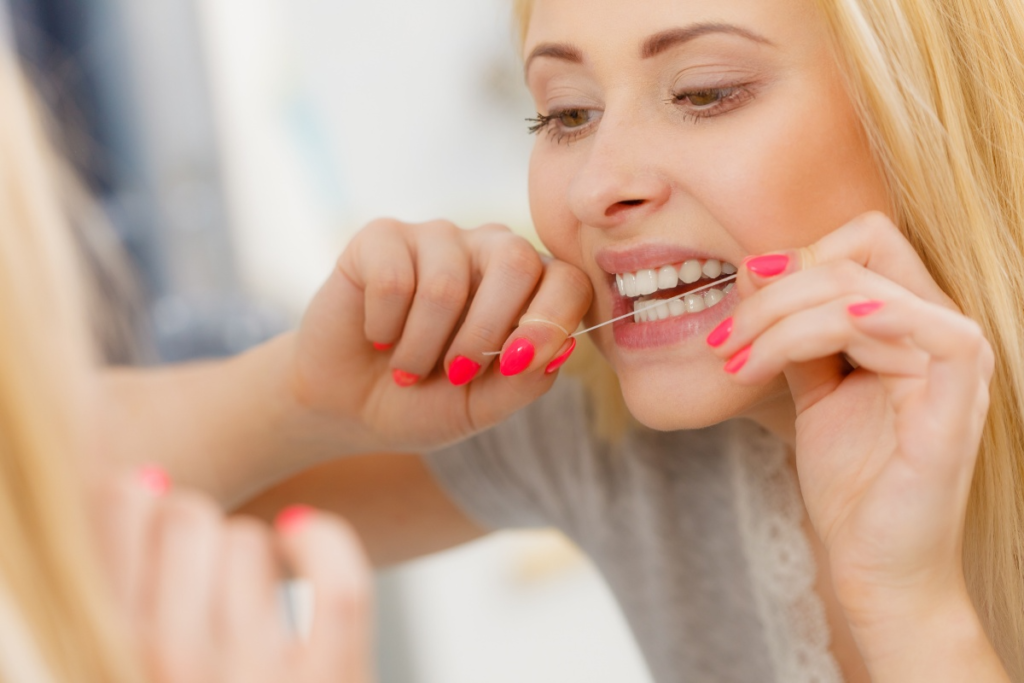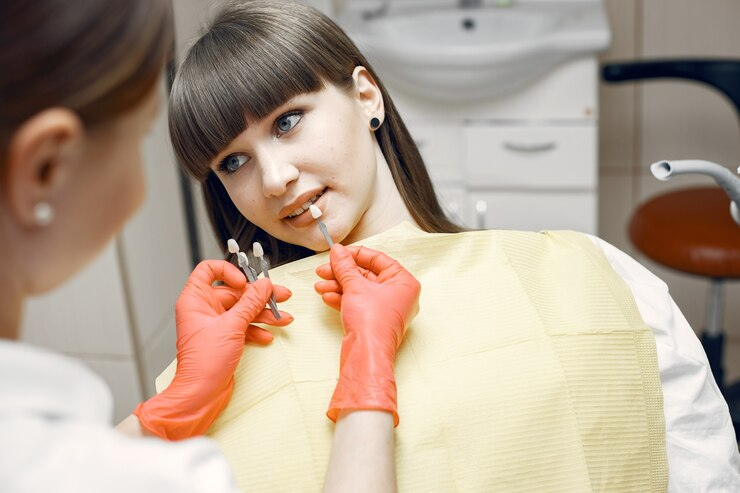Maintaining healthy teeth and gums starts with good habits. Brushing twice daily and regular dental visits are essential, as we see patients with the healthiest teeth prioritize preventive care. It’s never too late to take charge of your oral health, so here are our top 7 tips for achieving healthy teeth and gums.
1. Avoid sugary foods and drinks
Sugary treats and drinks are a double whammy for your teeth. Not only do the sugars feed the harmful bacteria in your mouth, but the stickiness of these substances can linger on your teeth, increasing the risk of cavities. To keep your smile sparkling and healthy, limit sugary indulgences and opt for water or unsweetened beverages instead.

2. Brush teeth twice a day
Brushing your teeth twice daily is crucial in maintaining good oral health. Here’s a breakdown of its benefits:
- Removes plaque and bacteria: Brushing twice daily helps remove plaque, a sticky film that forms on teeth and harbors harmful bacteria. Left unchecked, these bacteria can cause cavities and gum disease.
- Freshens breath: Brushing helps eliminate food particles and bacteria contributing to bad breath, leaving your breath fresh and clean.
- Promotes gum health: Brushing stimulates blood flow to the gums, keeping them healthy and reducing the risk of gum disease.
- Protects tooth enamel: Regular brushing helps remove food debris and plaque that can erode tooth enamel, the hard outer layer of your teeth. This helps prevent tooth decay and sensitivity.
Remember, brushing twice daily for two minutes each time, using a soft-bristled toothbrush and fluoride toothpaste, is the gold standard for optimal oral health.

3. Floss teeth once a day
Plaque, the enemy of healthy teeth, has a knack for hiding where your toothbrush can’t reach: between teeth and along the gum line. To combat this, flossing once a day is crucial. It helps dislodge and remove plaque from these hidden areas, preventing cavities from forming and ensuring a pleasant surprise (or lack thereof) during your next dental visit.

4. Mouth rinse once a day
Brushing and flossing are the cornerstones of oral hygiene, but a fluoride mouthwash can provide an extra layer of defense. Fluoride strengthens tooth enamel, making teeth more resistant to decay. A mouthwash can also help wash away lingering plaque or food particles that might escape brushing and flossing. Talk to your dentist about choosing a mouthwash that best suits your needs.

You must read this to avoid arthritis;
5. Dental sealants
Dental sealants aren’t just for kids! These protective coatings, applied to the chewing surfaces of molars, act as a shield against cavities. They fill in the natural grooves and pits of these teeth, prime targets for plaque buildup and decay. While commonly applied to newly erupted molars in children, adults can also benefit from dental sealants. This preventive measure helps prevent cavities and maintain a healthy smile.

6. Avoid Smoking, Chewing Tobacco, & Alcohol
Smoking and excessive alcohol consumption are double trouble for your oral health. Smoking stains teeth, promotes plaque buildup, weakens gums, increases the risk of tooth loss, and contributes to oral cancer. Additionally, it hinders your mouth’s ability to heal after injury. Alcohol dries the mouth, reducing saliva’s natural defense against bacteria and plaque, while its sugar and acidity contribute to cavities and potential tooth loss. Furthermore, regular alcohol use significantly increases the risk of developing oral cancer.

7. Consult your dentist
Regular dental checkups, ideally every six months, are vital for maintaining a healthy smile. During a cleaning, a dental hygienist gently removes plaque and tartar buildup. Plaque, a soft film harboring bacteria, can be brushed away, but once it hardens into tartar, only a professional can remove it. Leaving tartar unchecked raises your risk of cavities and gum disease. These checkups are a proactive approach to preventing problems and keeping your mouth healthy.

